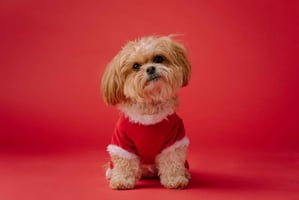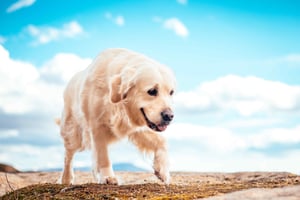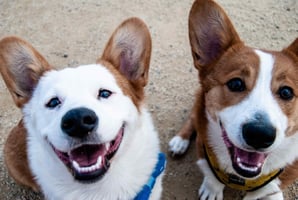Puppies crying at night can be a distressing experience for both the puppy and their owners. It can...
House Training Your Puppy in Winter
Winter can be a difficult time for house training your puppy. Cold weather and shorter days can make it difficult to get your pup outdoors for regular potty breaks. However, with a few tips and tricks, you can successfully house train your puppy in the winter months. In this article, we’ll discuss the most common questions about house training your puppy in winter, and provide tips and advice for making it a successful experience.
How to House Train Your Puppy in Winter
House training your puppy in winter can be a challenge, but it’s not impossible. The key is to be consistent and to be patient. Here are a few tips to help you get started:
- Create a schedule: Create a schedule for potty breaks that works with your lifestyle and the weather. For example, if it’s too cold to take your puppy outside, try to take them out every hour or so during the day. At night, you can reduce the frequency to every two hours.
- Reward your puppy: When your puppy goes potty outside, make sure to reward them with a treat or a special toy. This will help reinforce the behavior and make it easier for them to remember.
- Keep your puppy active: In the winter months, it’s important to keep your puppy active. This will help them stay warm and also help with their house training. Take your pup for regular walks or play games like fetch indoors.
- Clean up accidents quickly: If your puppy has an accident indoors, make sure to clean it up quickly. Use an enzymatic cleaner to remove any lingering odors and discourage your puppy from going in the same spot again.
What are the Benefits of House Training in Winter?
House training your puppy in the winter months has several benefits. Here are a few of the most important ones:
- It’s less stressful: House training a puppy in the winter is less stressful than trying to do it in the summer months. Without the distractions of other animals and people, your puppy can focus on learning the rules of the house.
- It’s easier to keep track: Keeping track of your puppy’s potty habits is much easier in the winter months. With fewer distractions, it’s easier to keep track of when and where your pup goes to the bathroom.
- It’s easier to keep them warm: In the winter months, it’s easier to keep your puppy warm. With the right gear and clothing, you can make sure your pup is warm and comfortable while they’re outside and learning the rules of the house.
What Should I Avoid When House Training a Puppy in Winter?
When house training your puppy in the winter months, there are a few things you should avoid. Here are a few of the most important ones:
- Don’t rush it: House training a puppy takes time and patience. Don’t rush the process and expect your pup to learn overnight. It takes time and consistency to teach your pup the rules of the house.
- Don’t expect too much: Your puppy is still learning and it’s important to remember that. Don’t expect your pup to understand everything right away and be patient with them as they learn.
- Don’t over-expose them to cold weather: It’s important to keep your puppy warm in the winter months. Make sure to dress them appropriately and don’t leave them outside for too long.
Conclusion
House training a puppy in winter can be a challenge, but it’s not impossible. With patience and consistency, you can successfully house train your puppy in the winter months. Make sure to create a schedule, reward your pup, keep them active, and clean up accidents quickly. Additionally, there are several benefits to house training your puppy in winter, including less stress, easier tracking, and easier warmth. Finally, make sure to avoid rushing the process, expecting too much, and over-exposing your pup to cold weather. With these tips, you can successfully house train your puppy in the winter months.



